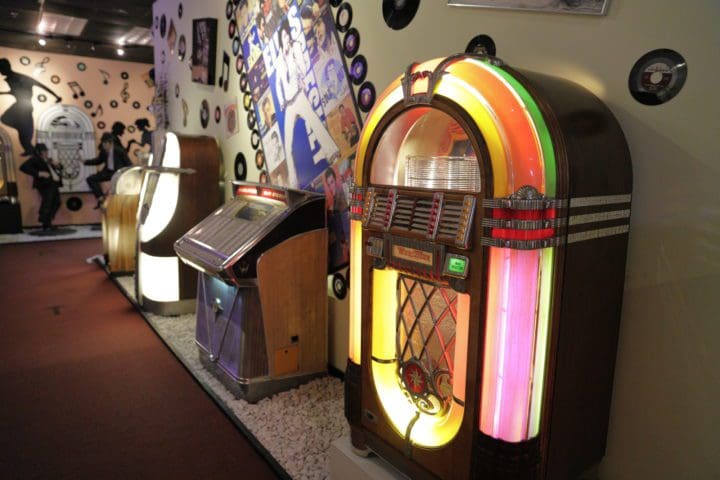Getting Rid of 4 Types of Inherited Assets You Don’t Need
posted by Ben on August 26, 2022
// Comments Off on Getting Rid of 4 Types of Inherited Assets You Don’t Need
Getting Rid of 4 Types of Inherited Assets You Don’t Need
What's in an estate can significantly impact the value of inheritance; it's not just about the money. In the coming decades, generations will pass down trillions of dollars, but not everyone will perceive their inheritance as a benefit; for some, it may even be a burden. The truth is that some possessions are preferable to leave behind because they might come with hidden fees or provoke disputes among family members. To help you decide, here are the top four types of inheritance you should get rid of to avoid family quarrels. We hope that this Getting Rid of 4 Types of Inherited Assets You Don’t Need inspires you.

Photo by Peggy Anke on Unsplash
Unwanted Piece of Land
When considering whether or not to put inherited lots for sale, financial and emotional factors will be at play to influence your decision. However, facts regarding expenses and responsibilities should help you make the right choice. There are many options for selling inherited property in California, you can this site to check it out.
Inheritance frequently consists of family land that has been handed down and has sentimental value. For instance, preserving the family ranch or the lake property where your grandfather taught you to hunt can be a great option if you can afford the related fees. But even if there isn't a sentimental connection to the land parcels, a real estate value study may reveal that it's a wise investment to hold onto, either to profit from in the future or to pass on to the next generation.
However, inheriting vacant land can also be a considerable burden depending on the circumstances. This is especially true if you’ve inherited undeveloped land or a property with environmental problems, like a spill from an oil tank. Additionally, the financial ramifications of inheriting land can range greatly, from a priceless plot of land that is debt-free to a plot of land burdened with a sizable mortgage and overwhelming taxes.

https://divinelifestyle.com/the-joy-of-collecting-beautiful-things/
Valuable Collectibles
Whether it’s gold coins, a rare stamp collection, or a fine piece of artwork, collectibles are usually handed off to the next generations so they can enjoy them. The advantage of inheriting collectibles is that they can help with taxes. The capital gains tax rate on collectibles can reach 28%, which is significantly higher than the maximum 20% long-term gains rate on other investments.
On the other hand, there are some substantial risks to leaving valuable collectibles as an inheritance. First, there’s a higher chance of losing these assets, especially if you’ve hidden them. Another problem is that collectibles are harder to value. You can’t exactly go to a bank or brokerage account just to see the balance. So, it might be best to sell these valuable collectibles and then split the profits. When selling inherited collectibles, you can receive tax-free what the collectible was worth on the day the person died. The best approach is to go through an auction house, where you can draw wealthy collectors to expensive items.

Best Home Improvement Tax Deductions to Put Money Back Into Your Pocket
Vacation Properties
Another possible financial and emotionally-charged inheritance is a vacation property, especially when it’s endowed to several family members. It’s not uncommon for siblings to stop communicating with one another over a property. For example, if one heir lives far away and doesn't want their part, disputes might arise over how often each heir can use the property, who is responsible for paying for repairs, whether they should buy one out, and at what price.
Even if there’s no dispute, a vacation home does come with high costs, such as maintenance, property taxes, insurance, and any outstanding mortgage. These expenses can ultimately exceed their value. Therefore, selling can be the best option. Since it's not your primary residence, you would have to pay capital gains taxes on any appreciation, but making that investment would be worth it to prevent future headaches.

What Do You Value Most?
Personal Items with Sentimental Value
Family disputes almost always arise over any tangible possession. Conflicts tend to be more emotional because personal items have greater sentimental meaning than monetary value. They are also more challenging to split. For example, who will inherit mom's engagement ring, for instance, if there are three children?
Another drawback when inheriting personal items is that determining their value is more challenging. For example, people tend to overestimate what they have in jewelry and antiques when the actual value is significantly lower. So if the will doesn’t clearly state who gets what and you can’t get to an agreement on how to split the items, be sure to appreciate them and then sell or donate them.
With the inherited property comes responsibility. It’s especially tricky for the items like vacant lots, vacation homes, collectibles, and valuable personal items. These can often be a reason for family disputes or significant, ongoing financial expenses. More often than not, getting rid of these items is best to save yourself from troubles down the road. We hope that this Getting Rid of 4 Types of Inherited Assets You Don’t Need inspires you.
6 Options for Keeping Small Valuables Safe in Your Home
Comments Off on Getting Rid of 4 Types of Inherited Assets You Don’t Need








